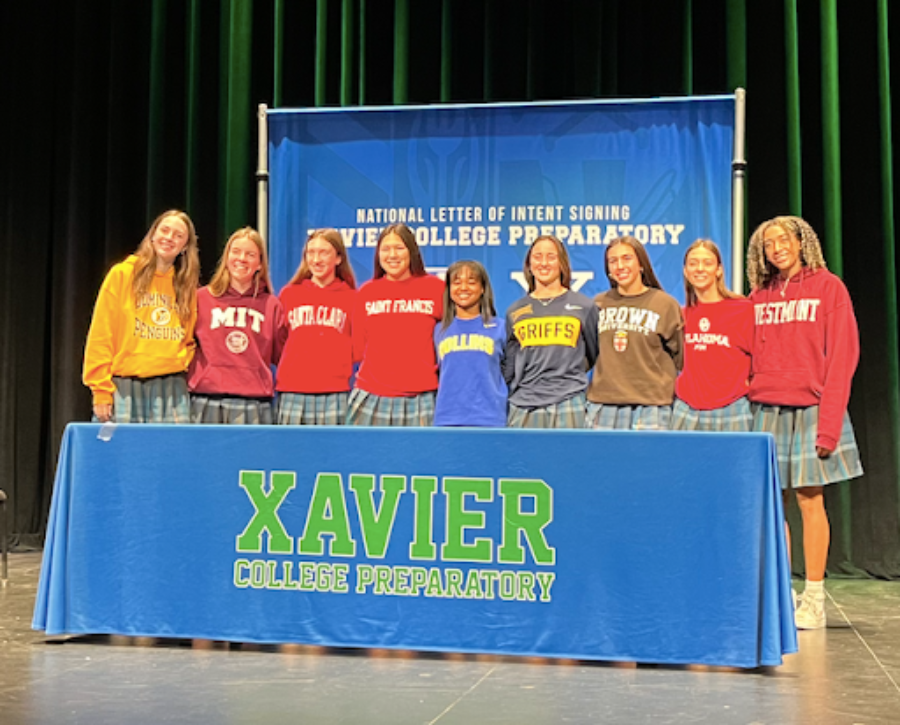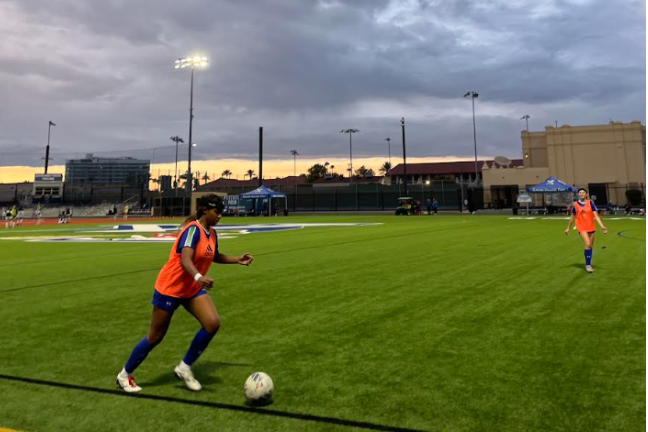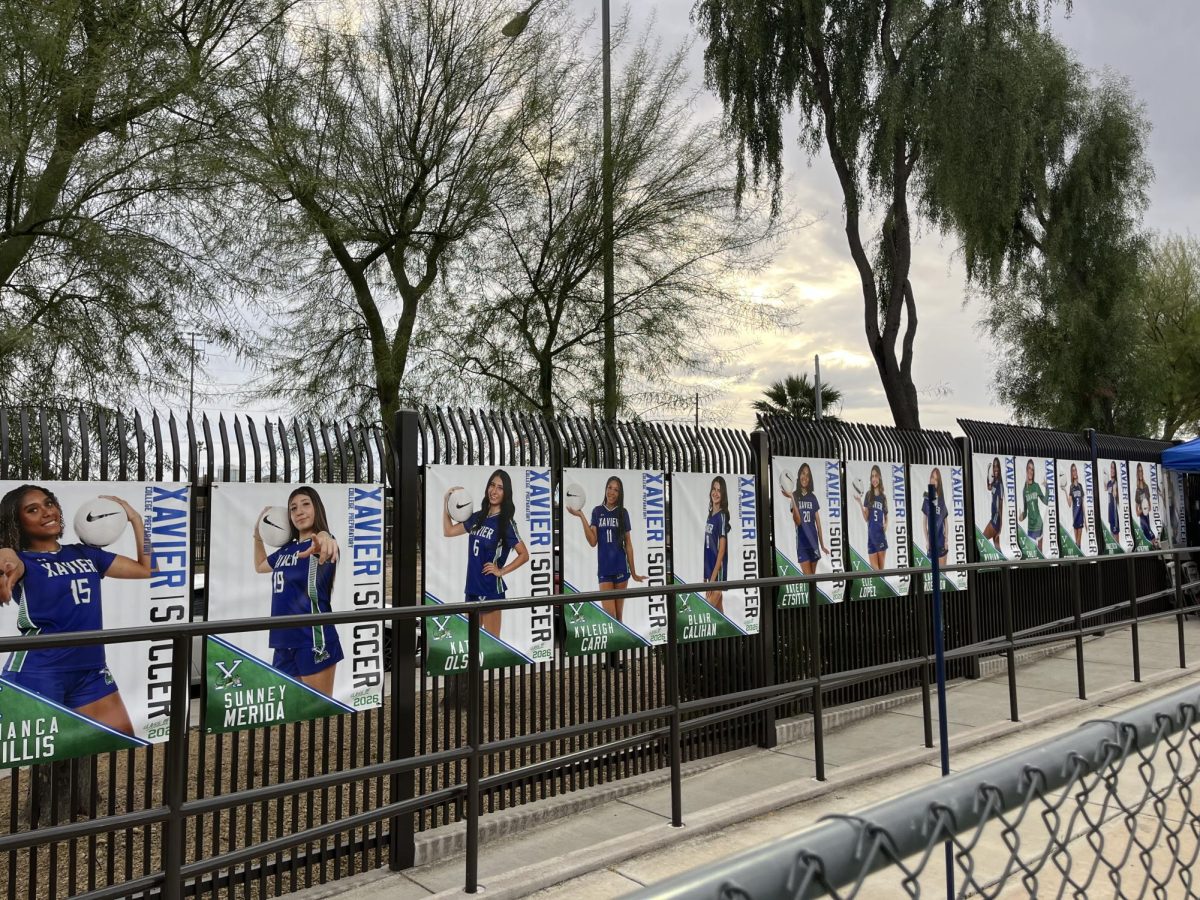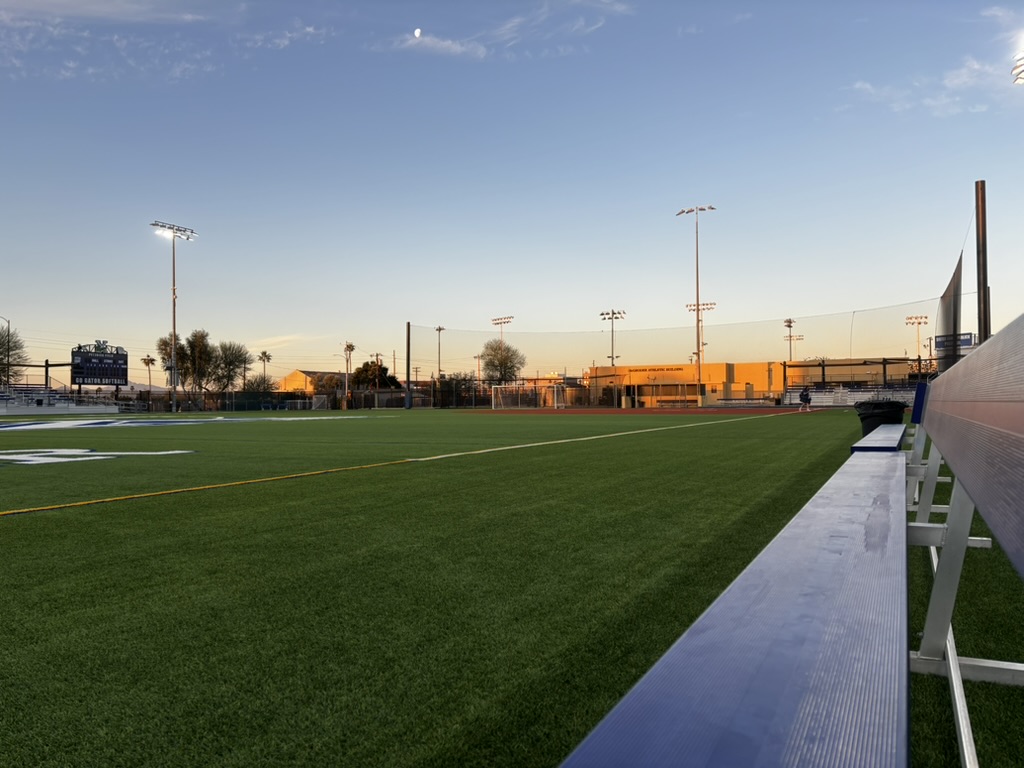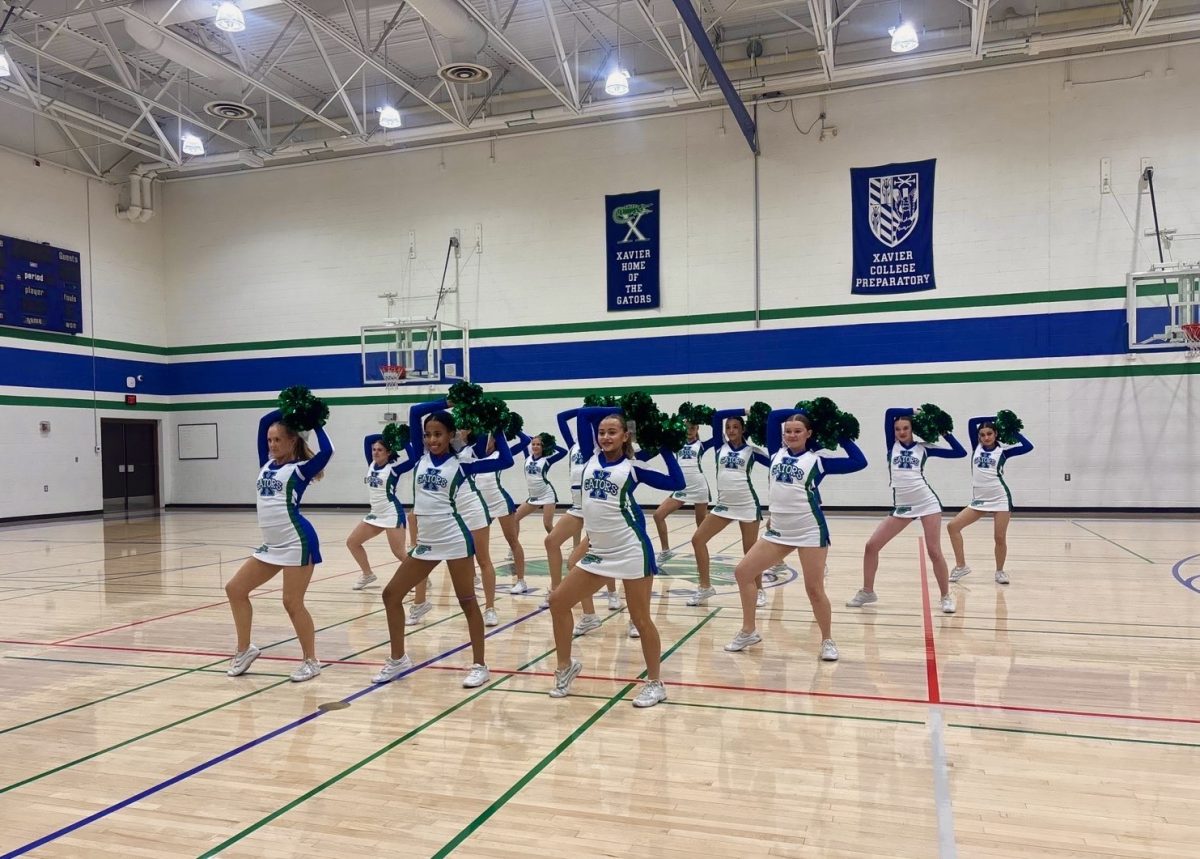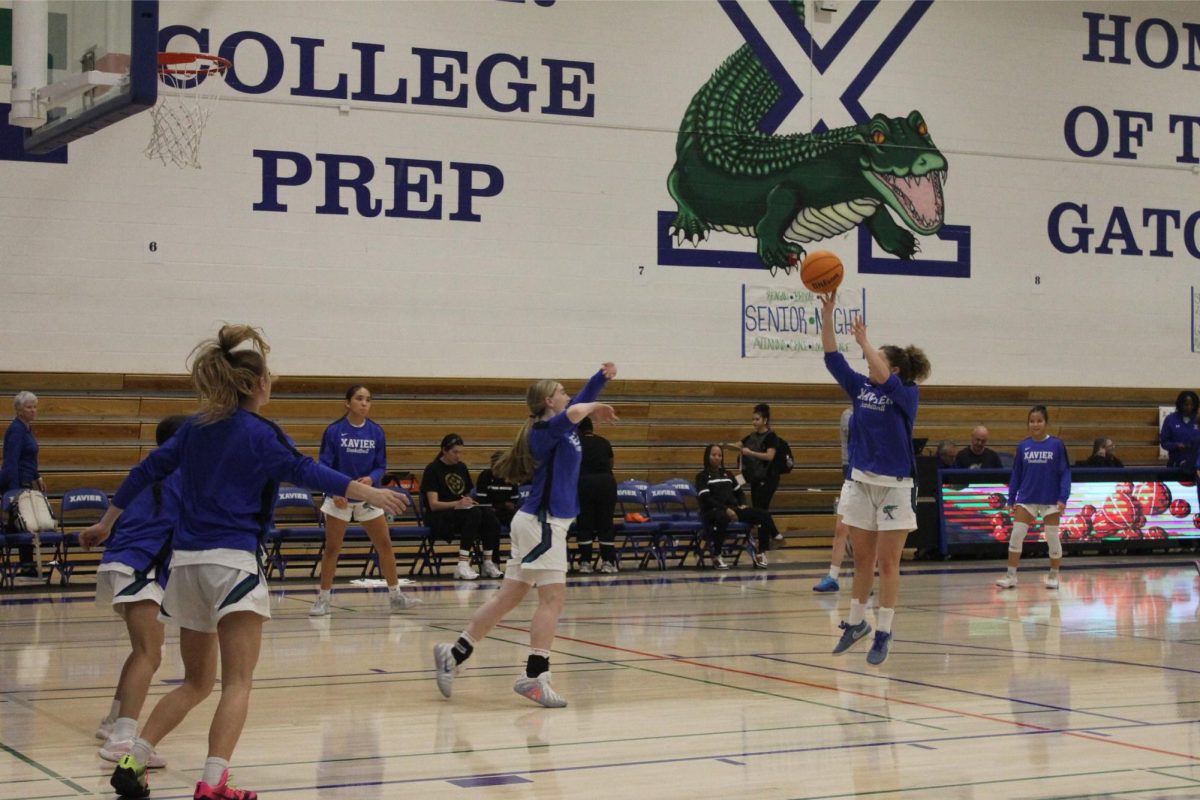Many students plan to attend university with the sole intention of furthering their educations, but a select few seniors have the ability to sign national letters of intent to play collegiate sports. This accomplishment comes from years of time, effort and dedication and these student-athletes have put in countless hours to achieve levels of performance worthy of collegiate interest.
Prior to the official start of the recruitment process, varsity softball player Lauren Putz ‘24 said, “I would email college coaches about my tournament schedule and fields we were playing on to grab their attentions so they could come and watch me.” Putz began scouting out possible schools the moment she began high school, and is now set to attend the University of Michigan in the fall.
Getting on university radars is an essential part of collegiate athletics. To be noticed takes confidence and self-advocating. Without it, no student athlete would succeed.
Once your name begins to carry meaning with coaches, players receive invitations to tournaments and camps in order to show off their skills.
Dartmouth College women’s soccer will gain Lourdes Lauterborn ‘24 in the fall. “I attended specific college ID camps. I went to Brown, Yale, Princeton and then a California camp that included schools like Stanford, Berkeley, Georgetown, Oregon and UCSD,” said Lauterborn.
Jayden Jevnick ‘24 also added, “I attended a camp for SMU and got to meet some of the teammates. This was helpful as it gave me insight into how college practices are held and I was able to ask players about their own college golf experiences.” Jevnick is committed to play golf at Vanderbilt University in the fall.
While attending events and emailing coaches may sound straightforward, no large effort comes without struggle and setback.
For many, the mental aspect of the process posed the biggest challenge. “The biggest struggle in this process was focusing on my golf game while in front of coaches rather than thinking heavily about what they think of me,” Jevnick said.
These high pressure moments can tank a player’s confidence, possibly ruining their chances of playing for a program. Lauterborn reflects on a poor performance she had in front of one of her top prospect schools. “I truly wondered if any school would want me and if I was truly good enough to play in college,” Lauterborn said.
Once these stellar athletes make names for themselves by accommodating and communicating with schools, it is time for them to make their own decisions about what program best suits their athletic wants and needs.
Having familial ties to Michigan, Putz describes a feeling of being at home when at the university. She has always dreamed of playing as a Wolverine and she believes her decision for her athletic future was an easy one.
Other students have difficult times deciding what programs they will dedicate their next four years of time and energy to.
Lauterborn’s choices were narrowed to Dartmouth, Brown and the University of Arizona, while Jevnick was deciding between Vanderbilt and Texas A&M. Both athletes ended up selecting their formers, Dartmouth and Vanderbilt.
While the process itself poses many stressors, once an athlete has decided upon a program, the pressure of college applications the majority of their classmates face is nonexistent.
Believing she speaks for many if not all committed seniors, Lauterborn states, “Emailing coaches, going on visits, and trying to figure out a program that you like and likes you back was more stressful than I can ever convey. My junior year was my main stress year, but I am grateful because it allowed me to breathe my senior year, and for that I am extremely happy.”




